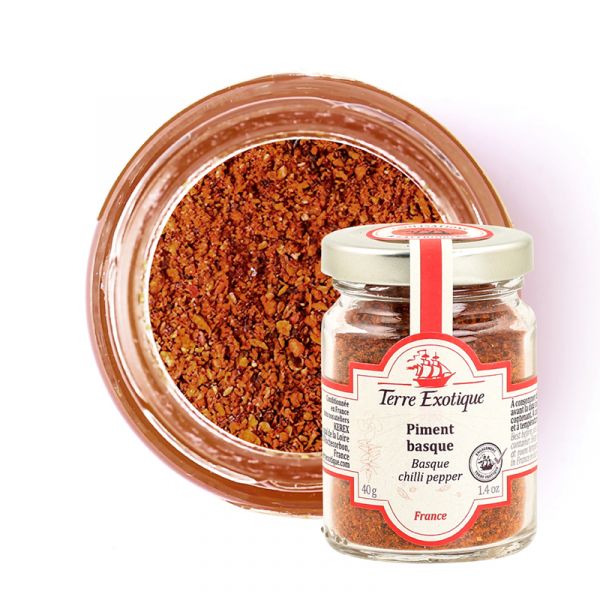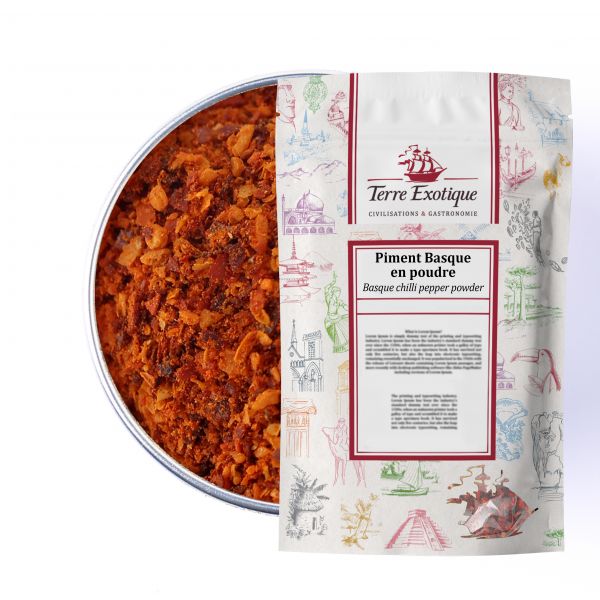



How to Use Basque Pepper in Cooking?
You can use Basque pepper on dishes such as eggs, salads, or grilled seafood. Create a marinade by mixing the pepper with olive oil, garlic, and herbs to accompany your meats and fishes.
Some Recipe Ideas Using Basque Pepper
- - Basque Chicken: Prepare a delicious Basque chicken by sautéing chicken pieces with bell peppers, tomatoes, onions, and garlic. Add Basque pepper for a warm and flavorful touch;
- - Grilled Prawns: Marinate prawns in olive oil, minced garlic, and Basque pepper, then grill them on a griddle. Serve with a slice of lemon for a fresh flavor;
- - Basque Pepper Sauce: Create a tasty sauce by mixing Basque pepper with sour cream, garlic, and parsley. Use this sauce to accompany pasta, fish, or chicken;
- - Pepper Spread: Blend grilled peppers with Basque pepper, garlic, olive oil, and salt to create a delicious spread. Perfect to serve with toasted bread or crackers;
- - Basque Pepper Jam: Turn Basque pepper into a delicious jam to accompany cheeses, meats, or even desserts;
- - Basque Salad: Create a colorful salad by mixing bell peppers, tomatoes, hard-boiled eggs, olives, and Basque pepper. Season with olive oil and vinegar for a summer freshness.
What Are the Flavors of Basque Pepper?
The pepper has flavors of confit tomatoes and bell peppers. Its fruity flavors go perfectly with Basque chicken, veal stew, tagine, a simple omelet, a garden tomato salad, grilled fish, meat skewers, and duck rillettes from Périgord.
Botanical Origin of Basque Pepper
Botanically, it belongs to the species Capsicum annuum. This pepper is characterized by its conical shape and distinctive taste, which oscillates between fruity sweetness and moderate heat. It is harvested when ripe, then dried before being transformed into powder. It is said that the flavors of Basque pepper develop thanks to the warm southern winds called "Haize Hegoa" and the oceanic microclimate. Pepper is called "Biperra" in the Basque language.
Basque Pepper, a Historical Spice
Pepper cultivation was introduced to the Basque Country in the 16th century by the Spanish navigator Juan Sebastian Elcano following an expedition to America. In the past, Basque pepper drying was done on the facades of houses. Today, drying is done in greenhouses and ovens. Harvesting is entirely manual. It takes place from August to November when the peppers have reached maturity, that is to say, bright red in color.
| Allergen | Absence |
|---|---|
| Native country | FRANCE |
| Genus and botanical species | Capsicum annuum |
| Ingredients | hot chilli pepper |
| TRACES EVENTUELLES D'ALLERGÈNES | céleri, sésame, moutarde, fruits à coques. |
 Français
Français 